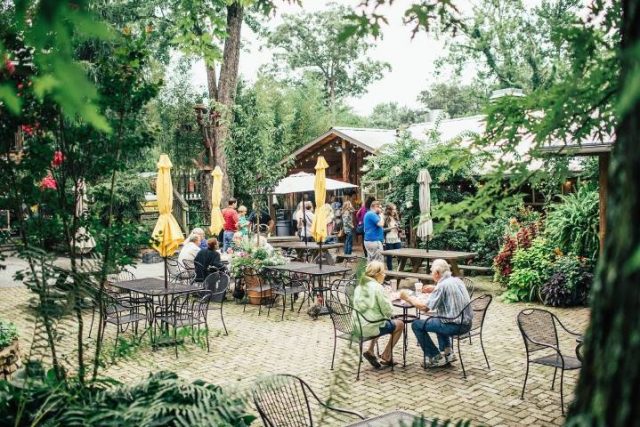
Where does North Carolina’s centuries-old barbecue tradition cross paths with the state’s ascending wine industry? Top answer: Lexington.
A city of 19,000, Lexington lends its name to a barbecue style built on wood-smoked pork shoulders seasoned with tomato-laced vinegar sauce. In addition to 15 barbecue joints, Lexington is home base for the Yadkin Valley wine region’s Southern Gateway Wine Trail. The ultimate meeting of barbecue and bottle comes in October at the Barbecue Festival with Childress Vineyards’ release of a vintage Fine Swine Wine, which matches semi-sweet fruitiness to the pork’s smoky overtones.
Beyond Childress’ destination winery experience, Wine Trail followers can set a course for Native Vines Winery, the country’s first Native American-owned winery; Junius Lindsay Vineyard, which excels with Rhône-style wines; and Weathervane Winery, which invites overnight cabin stays. Stars on the restaurant list include Lexington Barbecue, a James Beard America’s Classics restaurant, and the Barbecue Center, which is nearly as famous for its 4-pound banana split as it is for pulled pork.
Head to the Hendersonville area
The home of North Carolina’s newest wine region might never match Lexington for barbecue prevalence, but wine’s another story. Since the establishment of the compact Crest of the Blue Ridge Henderson County American Viticultural Area in 2019, the winery count has grown from three to six.
On the barbecue front, Flat Rock is home to the chef-driven Hubba Hubba Smokehouse, a stop on the N.C. Barbecue Society’s Historic Barbecue Trail, plus the Flat Rock Wood Room, and Green River Barbeque lies a few miles south in Saluda. Wine lovers can drink in lofty views along the Eastern Continental Divide, where the less commonly grown grüner veltliner grape is flourishing. Two of the new wineries, Marked Tree Vineyard and Stone Ashe Vineyards, won high honors in the N.C. Fine Wine Society’s 2021 competition.





